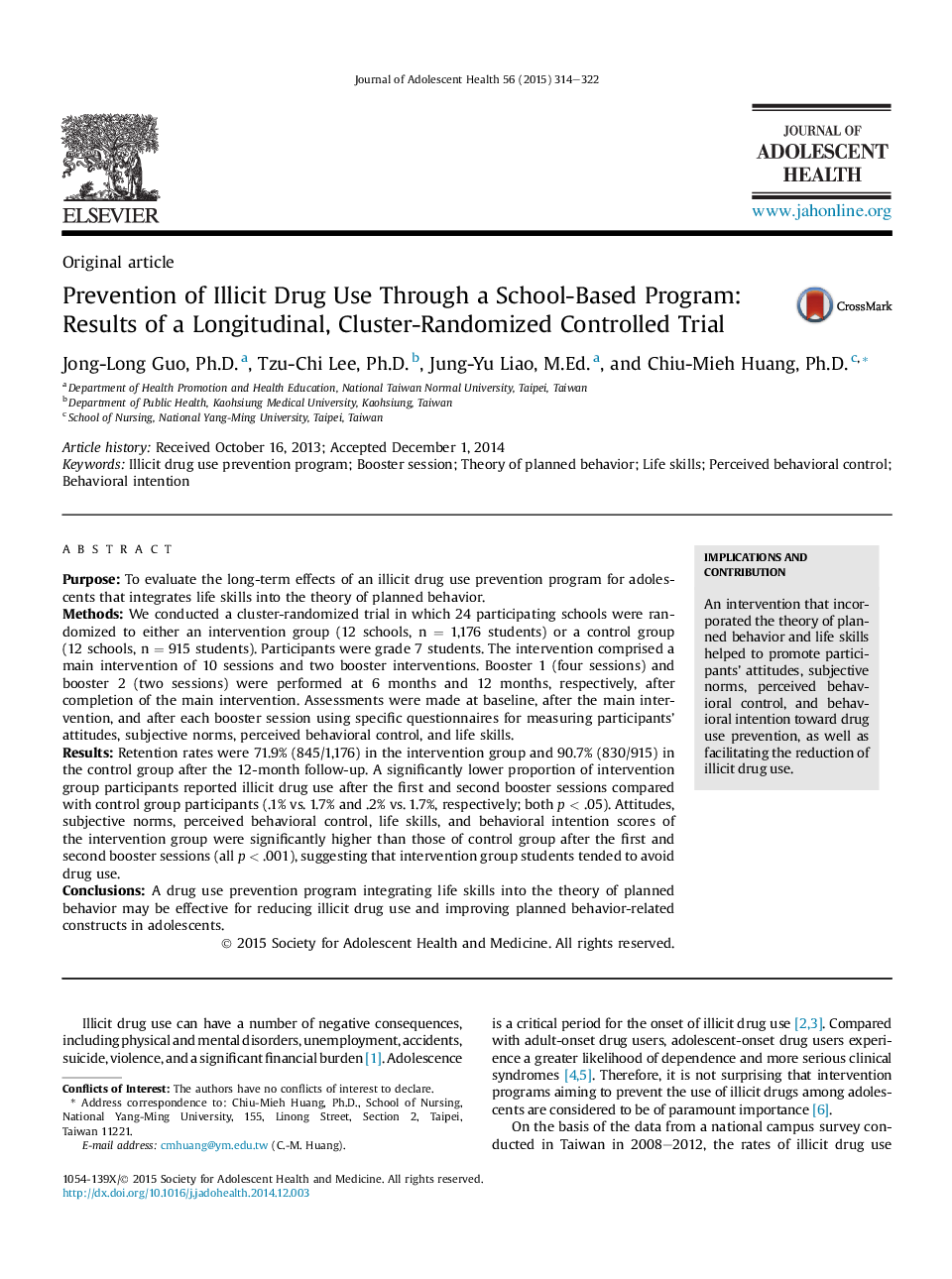| کد مقاله | کد نشریه | سال انتشار | مقاله انگلیسی | نسخه تمام متن |
|---|---|---|---|---|
| 1077982 | 950414 | 2015 | 9 صفحه PDF | دانلود رایگان |
PurposeTo evaluate the long-term effects of an illicit drug use prevention program for adolescents that integrates life skills into the theory of planned behavior.MethodsWe conducted a cluster-randomized trial in which 24 participating schools were randomized to either an intervention group (12 schools, n = 1,176 students) or a control group (12 schools, n = 915 students). Participants were grade 7 students. The intervention comprised a main intervention of 10 sessions and two booster interventions. Booster 1 (four sessions) and booster 2 (two sessions) were performed at 6 months and 12 months, respectively, after completion of the main intervention. Assessments were made at baseline, after the main intervention, and after each booster session using specific questionnaires for measuring participants' attitudes, subjective norms, perceived behavioral control, and life skills.ResultsRetention rates were 71.9% (845/1,176) in the intervention group and 90.7% (830/915) in the control group after the 12-month follow-up. A significantly lower proportion of intervention group participants reported illicit drug use after the first and second booster sessions compared with control group participants (.1% vs. 1.7% and .2% vs. 1.7%, respectively; both p < .05). Attitudes, subjective norms, perceived behavioral control, life skills, and behavioral intention scores of the intervention group were significantly higher than those of control group after the first and second booster sessions (all p < .001), suggesting that intervention group students tended to avoid drug use.ConclusionsA drug use prevention program integrating life skills into the theory of planned behavior may be effective for reducing illicit drug use and improving planned behavior-related constructs in adolescents.
Journal: Journal of Adolescent Health - Volume 56, Issue 3, March 2015, Pages 314–322
